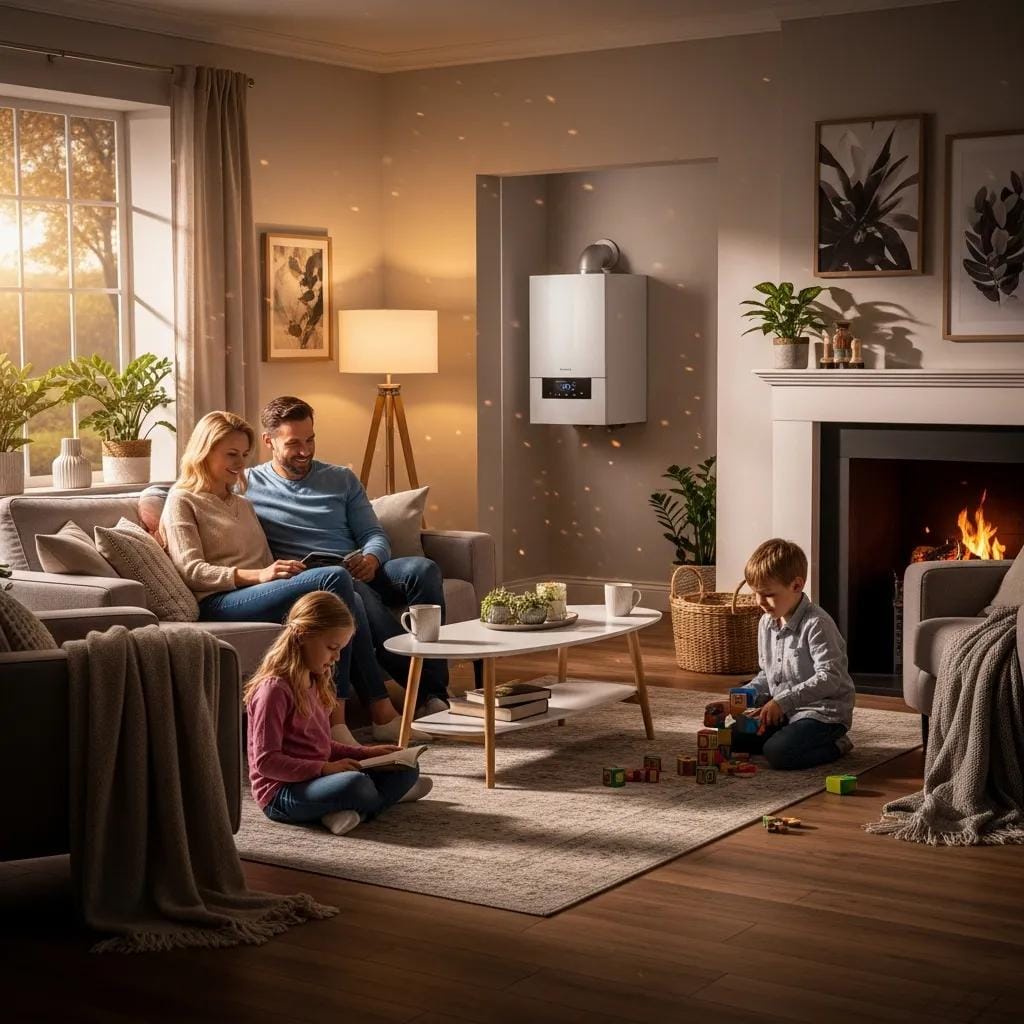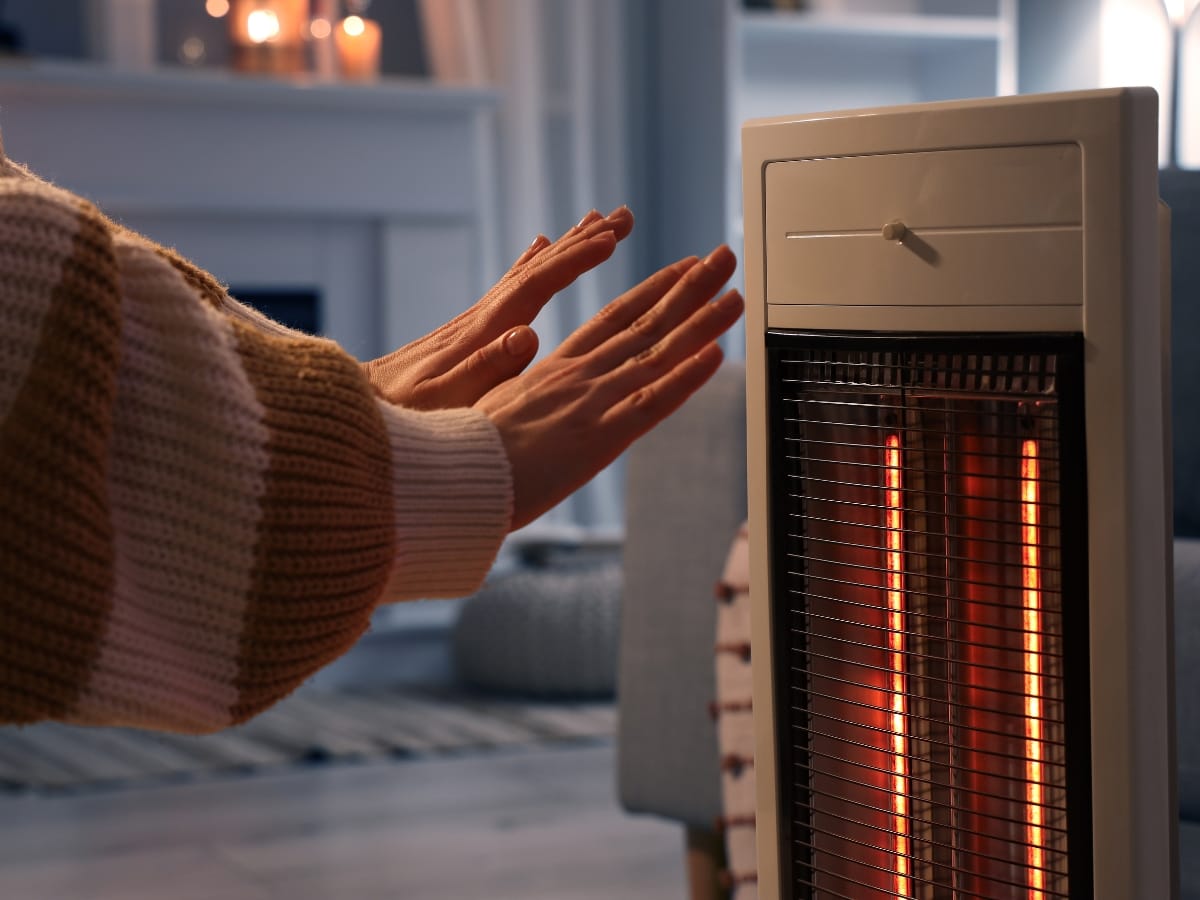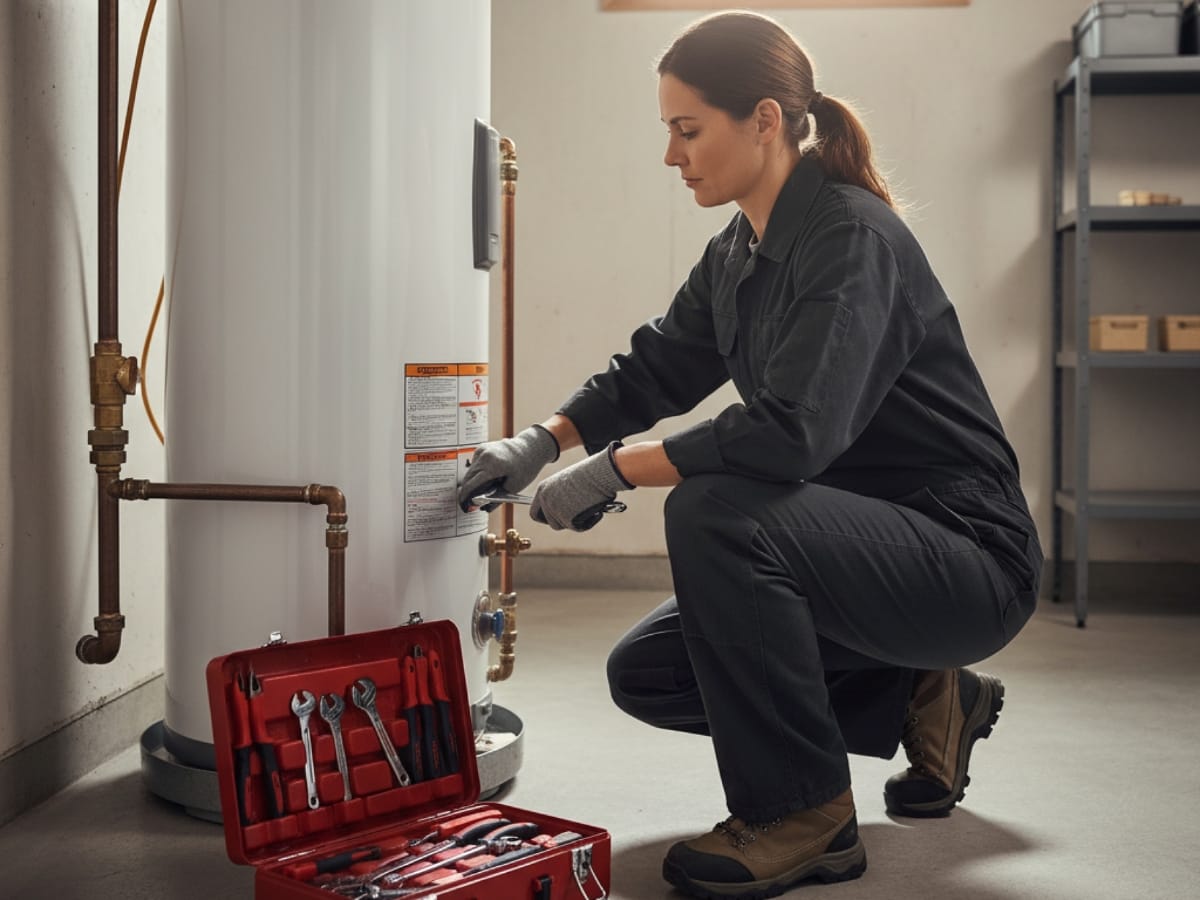Is your AC struggling to keep up with Dallas‘s scorching summers? This article outlines key signs that indicate it’s time for an AC replacement in Dallas. We’ll cover system age, performance issues, and financial considerations. By recognizing these indicators early, you can avoid breakdowns during peak heat and ensure your home stays cool all summer long. Learn how to assess your AC’s condition and make an informed decision about a replacement before the hot weather hits.
AC Replacement in Dallas Made Easy — Fast, Affordable, Reliable
Recognizing Signs That Indicate AC Replacement Is Necessary in Dallas
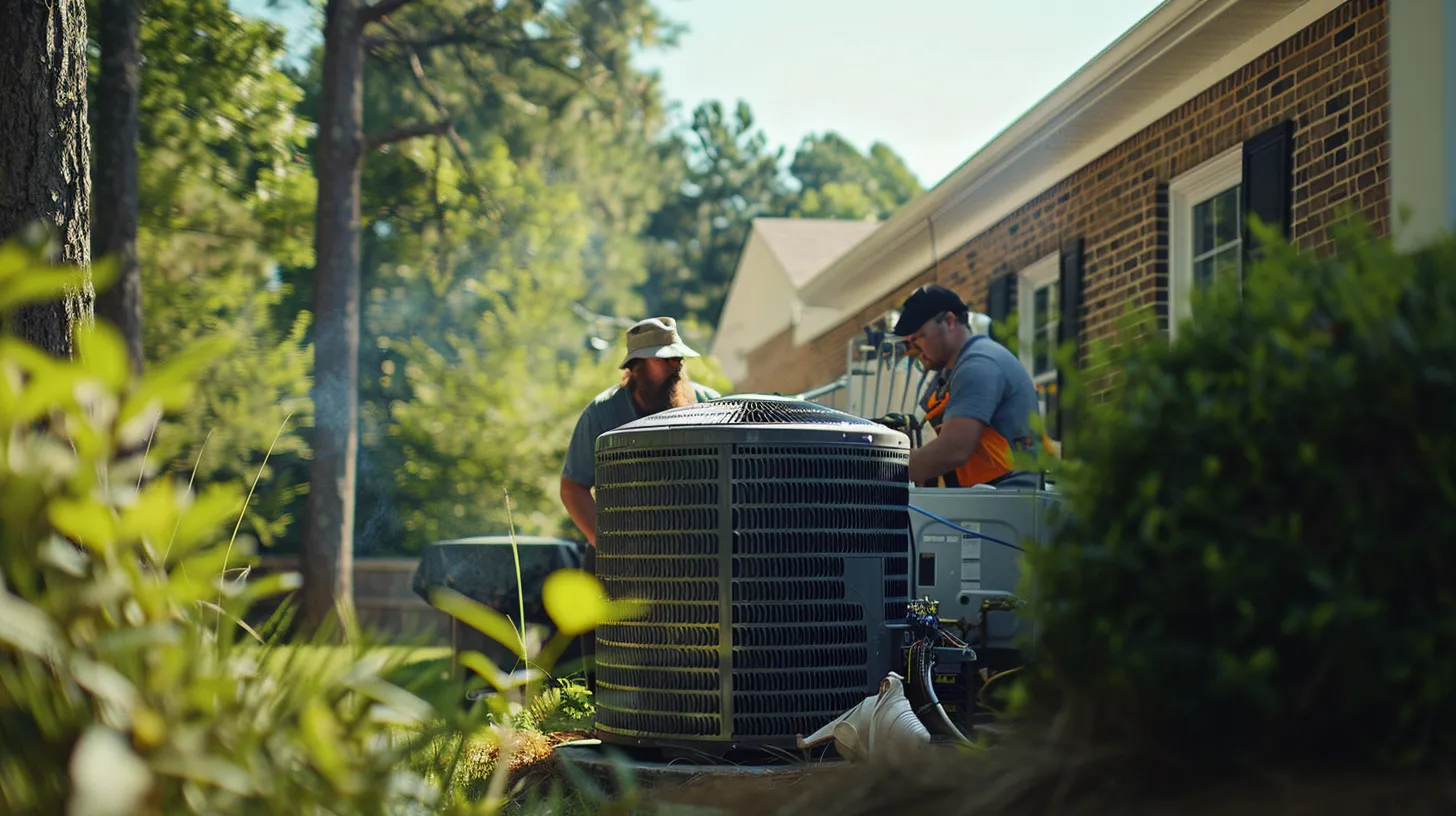
Dallas homeowners need to recognize key signs indicating it’s time for AC replacement. These include reduced efficiency, inconsistent temperatures, unusual noises, rising energy bills, and frequent repairs. Understanding these indicators helps prevent unexpected breakdowns during hot summers.
Proper maintenance and timely replacement ensure optimal cooling for homes and cars alike. Contact a professional to assess your system‘s condition and explore replacement options for your zip code.
Understanding Reduced Efficiency in Your Air Conditioner
Air conditioners experiencing reduced efficiency often struggle to maintain consistent temperatures, leading to increased energy consumption. This decline in performance can result from worn components, refrigerant leaks, or a failing air handler, signaling the need for a professional assessment. Homeowners should consider their AC’s age and repair history when evaluating the investment of replacement versus continued maintenance.
Experienced technicians can diagnose efficiency issues and provide tailored solutions, including financing options for new, energy-efficientsystems. By addressing reduced efficiency promptly, Dallas residents can avoid discomfort during peak summer months and potentially save on long-term energy costs. Regular maintenance and timely upgrades ensure optimal performance and extended system lifespan.
Monitoring Inconsistent Temperature Throughout Your Home
Inconsistent temperatures throughout a home often signal the need for AC replacement. When homeowners notice some rooms feeling cooler than others, it may indicate an aging system struggling to distribute air evenly. This issue can stem from various factors, including ductwork problems, a failing compressor, or an undersized unit. To address this, homeowners might consider a new energy-efficient system or consult an electrician to check for any electrical issues affecting the AC’s performance.
Monitoring temperature fluctuations is crucial for maintaining comfort and energyefficiency. Homeowners can use smart thermostats to track temperature variations and identify patterns that suggest a need for AC replacement. If adjusting the thermostat doesn’t resolve the issue, it may be time to switch to a new system.
When considering replacement, homeowners should evaluate both gas and electric options, weighing factors such as energy consumption and long-term cost savings. Here’s a checklist for monitoring temperature inconsistencies:
- Check for significant temperature differences between rooms
- Note any sudden increases in energy bills
- Pay attention to how long it takes for the AC to cool the home
- Listen for unusual noises when the system turns on or off
- Observe if the system runs constantly without reaching the desired temperature
Identifying Unusual Noises From the Air ConditioningUnit
Unusual noises from an air conditioningunit often signal the need for replacement. Grinding, squealing, or rattling sounds can indicate worn bearings, loose components, or a failing compressor. Homeowners should pay attention to these noises, as they may worsen over time and lead to system failure, especially during hot Dallas summers when the condenser works overtime.
A properly functioning AC system should operate quietly, with only a gentle hum. If strange noises persist after adjusting the thermostat or checking for debris around the outdoor unit, it’s time to call a professional. Technicians can assess whether the issue stems from the condenser, sump pump, or other components, and recommend repair or replacement to ensure optimal temperature control and system longevity.
Observing Increases in Energy Bills Without Increased Usage
Observing increases in energy bills without a corresponding rise in usage often indicates declining AC efficiency. Homeowners may notice their electricity costs climbing despite consistent thermostat settings and usage patterns. This phenomenon typically results from an aging system struggling to maintain proper airflow or a compressor working overtime to compensate for leaks or worn components.
To address this issue, homeowners should schedule a professional inspection to identify potential problems. An experienced technician can assess the system‘s performance, check for refrigerant leaks, and evaluate the compressor‘s condition. If the inspection reveals significant inefficiencies, replacing the AC unit may offer long-term savings compared to escalating energy costs and frequent repairs. Here’s a breakdown of potential causes and solutions:
| Cause | Solution | Cost Impact |
|---|---|---|
| Reduced Airflow | Clean/Replace Filters | Low |
| Refrigerant Leak | Repair or Replace Unit | Medium to High |
| Failing Compressor | Replace AC System | High |
Noticing Frequent Breakdowns and Repairs
Frequent breakdowns and repairs are clear indicators that an AC system is nearing the end of its lifespan. Homeowners experiencing recurring issues with their heating and airsystems, such as pollutant buildup or heat pump failures, should consider replacement rather than continuous repairs. Regular maintenance can extend an AC’s life, but when problems persist despite upkeep, it’s time to explore new options.
Technicians can assess whether frequent repairs are cost-effective or if a new system would provide better long-term value. They can also advise on energy-efficient models that reduce pollutants and lower utility bills.
Homeowners can email professionals for a comprehensive evaluation of their current system and recommendations for replacement options tailored to their specific needs and budget.
Assessing the Age of Your Air ConditioningSystem
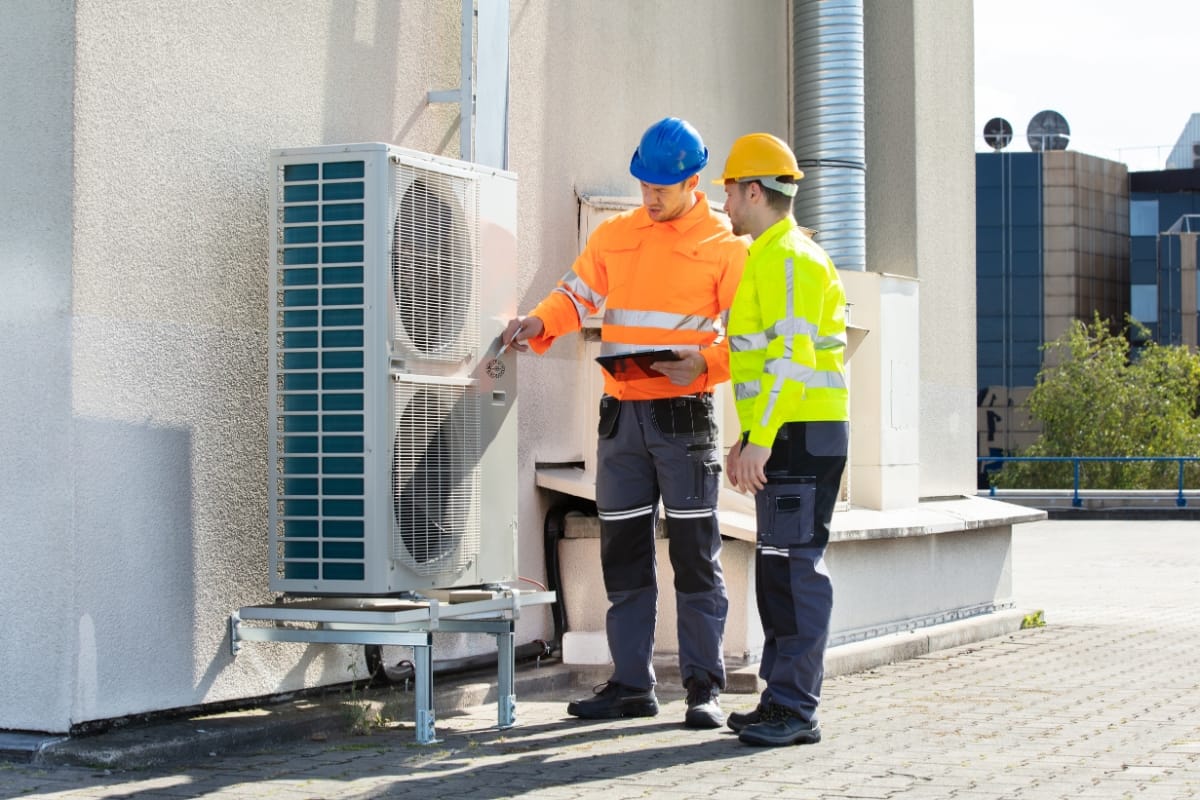
Assessing an AC system‘s age is crucial for Dallas homeowners considering replacement. This section explores the average lifespan of AC units in the region, how age impacts performance and efficiency, and the longevity of different AC types. Understanding these factors helps customers make informed decisions about their heatingsystems, potentially reducing their carbon footprint and improving Energy Star ratings. Proper assessment can lead to significant savings and improved comfort, especially for roof-mounted units in Dallas‘s challenging climate.
Determining the Average Lifespan of AC Units in Dallas
AC units in Dallas typically last 10-15 years, with proper maintenance extending their lifespan. Homeowners should consider AC replacement when their system approaches this age range, especially if repair costs increase. Professionals offer comprehensive assessments to determine if replacement is necessary, considering factors like warranty coverage and potential rebates for energy-efficient upgrades.
The harsh Dallas climate can impact air conditioningsystems, potentially shortening their lifespan. Homeowners can reach out to experts for personalized advice on their AC’s condition and replacement options. Regular maintenance and timely replacements ensure optimal performance and energyefficiency, potentially leading to significant cost savings over time.
| AC Age | Recommended Action |
|---|---|
| 0-5 years | Regular maintenance |
| 6-10 years | Assess efficiency, consider upgrades |
| 11-15 years | Evaluate for replacement |
| 15+ years | Strongly consider replacement |
Evaluating How Age Affects Performance and Efficiency
As air conditioningsystems age, their performance and efficiency naturally decline. Dallas homeowners can educate themselves about how older units struggle to maintain consistent temperatures, leading to increased energy consumption and higher utility bills. The company’s air conditioningservices include thorough evaluations to determine if an aging system is still operating at optimal levels.
Older AC units often require more frequent repairs, including issues with the drain line or emergency service calls during peak summer months. Experienced technicians can assess whether these recurring problems indicate a need for replacement, helping homeowners avoid costly breakdowns and ensure reliable cooling when it matters most. Their comprehensive services aim to maximize the lifespan of existing systems while providing expert guidance on when upgrading to a more efficient model becomes the most cost-effective solution.
Understanding Different Types of AC Units and Their Longevity
Different AC unit types vary in longevity and efficiency, impacting indoor air quality and electricity consumption. Central air systems typically last 15-20 years, while ductless mini-splits can operate efficiently for up to 30 years with proper maintenance. Window units generally have shorter lifespans, averaging 8-10 years before requiring replacement.
Understanding these differences helps homeowners make informed decisions about hvacrepair versus replacement. Technicians assess each unit‘s age, efficiency, and performance to recommend the most cost-effective solution. By considering factors like energy savings and improved air quality, Dallas residents can determine when upgrading to a newer, more efficient system outweighs the cost of continued repairs on an aging unit.
Environmental Factors Impacting AC Performance
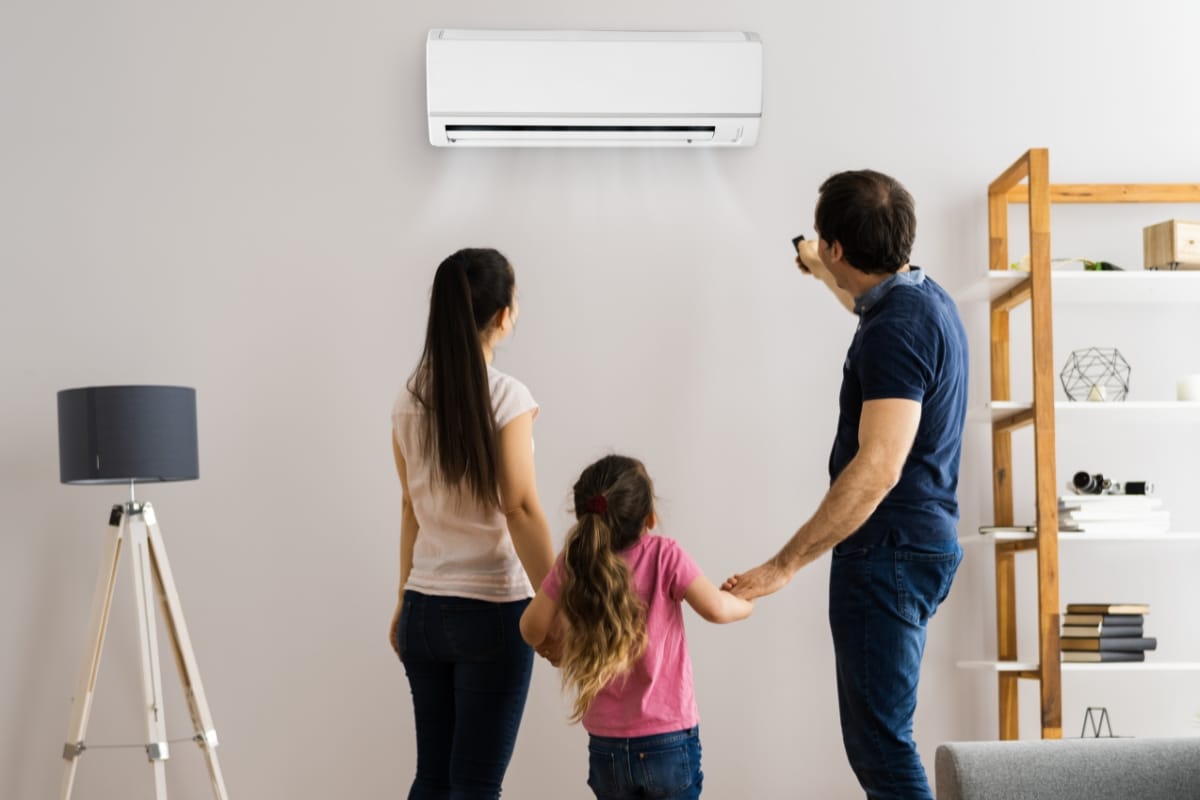
Dallas‘s unique climate poses challenges for air conditioning units, impacting their performance and longevity. This section examines how heat, humidity, and air quality affect AC efficiency, providing insights for homeowners considering replacement. Understanding these factors helps HVAC contractors offer tailored solutions, potentially qualifying for tax credits while addressing heating and plumbing needs. A trusted HVAC company, like CoolPro guides customers through environmental considerations to ensure optimal system function.
Examining the Impact of Dallas Heat on Air Conditioning Units
Dallas‘s summer heat puts exceptional strain on air conditioning units, accelerating wear and potentially shortening their lifespan. HVACinstallation professionals often find that systems working overtime to combat high temperatures may experience increased stress on components like compressors and condensers. This constant operation can lead to more frequent breakdowns and reduced efficiency, especially in poorly insulated attics where temperatures soar.
To combat these challenges, homeowners might consider upgrading to high-efficiencysystems like Trane units, known for their resilience in extreme climates. Air conditionerinstallation experts recommend sizing units appropriately for Dallas homes, factoring in not only square footage but also the impact of local air pollution and heat retention in building materials. Proper installation and regular maintenance can significantly extend an AC’s lifespan, even in the face of Dallas‘s punishing summer temperatures.
Considering the Effects of Humidity on AC Efficiency
Humidity significantly impacts AC efficiency in Dallas, often reducing system performance and increasing energy consumption. High moisture levels force air conditioning units to work harder, as they must remove excess water vapor from the air while cooling. This added strain can shorten the life expectancy of AC components, particularly in older systems not designed for humid climates.
To combat humidity‘s effects, homeowners should consider AC units with enhanced dehumidification features. Regular service and maintenance, including cleaning or replacing filters and checking refrigerant levels, can help systems manage humidity more effectively. For comprehensive climate control, some Dallas residents opt for integrated systems that combine AC with dehumidifiers or even boilers for year-round comfort. Consider these factors when assessing AC efficiency in humid weather:
- System age and dehumidification capabilities
- Proper sizing for the home’s square footage
- Seal quality of windows and doors
- Presence of moisture-generating appliances
- Ventilation effectiveness in bathrooms and kitchens
Addressing Local Air Quality and Its Influence on System Function
Dallas‘s air quality significantly impacts AC system function, often necessitating air conditionerreplacement sooner than expected. Airborne pollutants can accumulate on essential components like coils and filters, reducing efficiency and straining the pump. This buildup forces systems to work harder, potentially leading to premature wear on electrical wiring and other critical parts.
To combat air quality issues, homeowners should consider air conditioningreplacement with units featuring advanced filtration systems. Regular maintenance, including filter changes and coil cleaning, can help mitigate the effects of poor air quality on AC performance. Technicians can assess how local air conditions affect individual systems and recommend appropriate solutions for Dallas residents.
Evaluating Comfort Levels Within Your Home

Evaluating home comfort is crucial when considering AC replacement in Dallas. This section explores how unpleasant odors, excessive dust, and system capacity impact indoor air quality and comfort. Understanding these factors helps homeowners make informed decisions about repair or installation, addressing issues like humidity control and budget constraints. Experts assess these elements to ensure optimal comfort and efficiency, even considering factors like lighting that affect perceived temperature.
Recognizing Consistent Unpleasant Odors From the System
Consistent unpleasant odors emanating from an air conditioningsystem often indicate underlying issues that may necessitate replacement. These odors can stem from various sources, including mold growth in the evaporator coil, burnt wiring, or a malfunctioning compressor. Homeowners experiencing persistent smells should promptly contact an HVACtechnician to assess the system‘s condition and determine if air conditionerrepair or replacement is necessary.
Advanced HVACtechnology has made significant strides in addressing odor issues, with newer systems incorporating improved filtration and air purification features. When considering AC replacement, Dallas residents should explore models that offer enhanced odor control capabilities. This proactive approach not only improves indoor air quality but also potentially reduces utility costs by ensuring the system operates at peak efficiency. Here are key factors to consider when addressing AC odors:
- Age and condition of the current system
- Frequency and severity of odors
- Impact on indoor air quality
- Energyefficiency of potential replacement units
- Long-term cost savings of upgrading to newer technology
Identifying Excessive Dust and Allergens Circulating in Your Home
Excessive dust and allergens circulating in a home often indicate an inefficient air conditioningsystem. In Atlanta, where air quality can be a concern, homeowners may notice increased respiratory issues or a constant layer of dust on surfaces. The customerservice team advises that these signs could signal the need for air conditioninginstallation or replacement to improve indoor air quality.
Proper filtration plays a crucial role in maintaining clean air and reducing allergens. Air conditioninginstallation experts recommend regular filter changes and system inspections to ensure optimal performance. When considering AC replacement, homeowners should evaluate units with advanced filtration capabilities to address dust and allergen concerns effectively. The following factors contribute to improved air quality:
- High-efficiency air filters
- Regular maintenance and cleaning
- Proper ductwork sealing
- Whole-home air purification systems
- Humidity control features
Understanding Your Family’s Comfort Needs Compared to Your System‘s Capacity
Understanding a family’s comfort needs in relation to their AC system‘s capacity is crucial for optimal home comfort. A system that’s too small will struggle to cool effectively, while an oversized unit may short cycle, leading to inconsistent temperatures and increased energy consumption. Homeowners should consider factors like square footage, insulation quality, and the number of occupants when assessing their AC needs, potentially incorporating a smart thermostat for improved temperature control and energyefficiency.
Technicians evaluate both the air conditioner and furnace to ensure year-round comfort. They may recommend upgrades such as a surge protector to safeguard the system from power fluctuations or a high-efficiencyair filter to improve indoor air quality. Financing options and available credits can make these improvements more accessible, allowing families to invest in a system that truly meets their comfort needs without compromising their budget.
Financial Considerations for AC Replacement

When considering air conditionerreplacement in Dallas, homeowners must weigh financial factors carefully. This section examines long-term savings potential, compares repair versus replacement costs, and explores local energyefficiency incentives. Understanding these aspects helps residents make informed decisions, potentially saving money on future air conditioning repairs and leak detection. Technicians can provide valuable insights into water-related issues and overall systemefficiency.
Calculating Long-Term Savings With a New AC System
Homeowners can achieve substantial long-term savings by investing in a new AC system, particularly when considering the rising costs of refrigerant and potential carbontax implications. A modern, energy-efficient unit can significantly reduce monthly energy bills, often offsetting the initial installation expense within a few years. This cost reduction becomes even more pronounced when factoring in the decreased need for frequent repairs and maintenance associated with older systems.
When calculating long-term savings, homeowners should consider the potential lifespan of a new AC system, which can extend up to 15-20 years with proper care. This longevity, combined with improved efficiency, can lead to considerable savings over time. Additionally, integrating a new AC system with other home improvements, such as an upgraded water heater, can further enhance overall energyefficiency and cost savings, making the investment even more financially appealing for Dallas residents.
Analyzing Repair Costs vs. Replacement Expenses
Analyzing repair costs versus replacement expenses is crucial for Dallas homeowners considering AC upgrades. Experts can assess the frequency and severity of repairs, comparing them to the cost of a new system. When repair bills exceed 50% of replacement costs or occur frequently, investing in a new unit often proves more economical long term.
Air conditioningmaintenance plays a vital role in this analysis. Regular upkeep can extend an AC’s lifespan, potentially delaying the need for replacement. However, if maintenance costs escalate or fail to improve performance, replacement becomes a more attractive option. Professionals help homeowners weigh these factors, considering energyefficiency gains and potential rebates when recommending replacement over continued repairs.
- Evaluate repair frequency and cost
- Compare repair expenses to replacement quotes
- Consider energyefficiency improvements
- Factor in potential rebates and incentives
- Assess long-term savings of a new system
Exploring EnergyEfficiency Rebates and Incentives in Dallas
Dallas residents can take advantage of various energyefficiency rebates and incentives when replacing their AC systems. Local utility companies offer cash rebates for installing high-efficiency units, potentially reducing the upfront cost of replacement. These programs often require specific energy ratings or features, encouraging homeowners to choose more efficient models that can lead to long-term savings on energy bills.
Experts help Dallas homeowners navigate available incentives, including federal tax credits for energy-efficient home improvements. Technicians can recommend qualifying systems and assist with the application process, maximizing potential savings. Homeowners should consider these incentives when evaluating the cost-effectiveness of AC replacement:
- Utility company rebates for high-efficiency units
- Federal tax credits for energy-efficient upgrades
- Manufacturer rebates on select models
- Seasonal promotions offered by local HVAC companies
- Energy-saving programs from state and local governments
Choosing the Right Time for AC Replacement
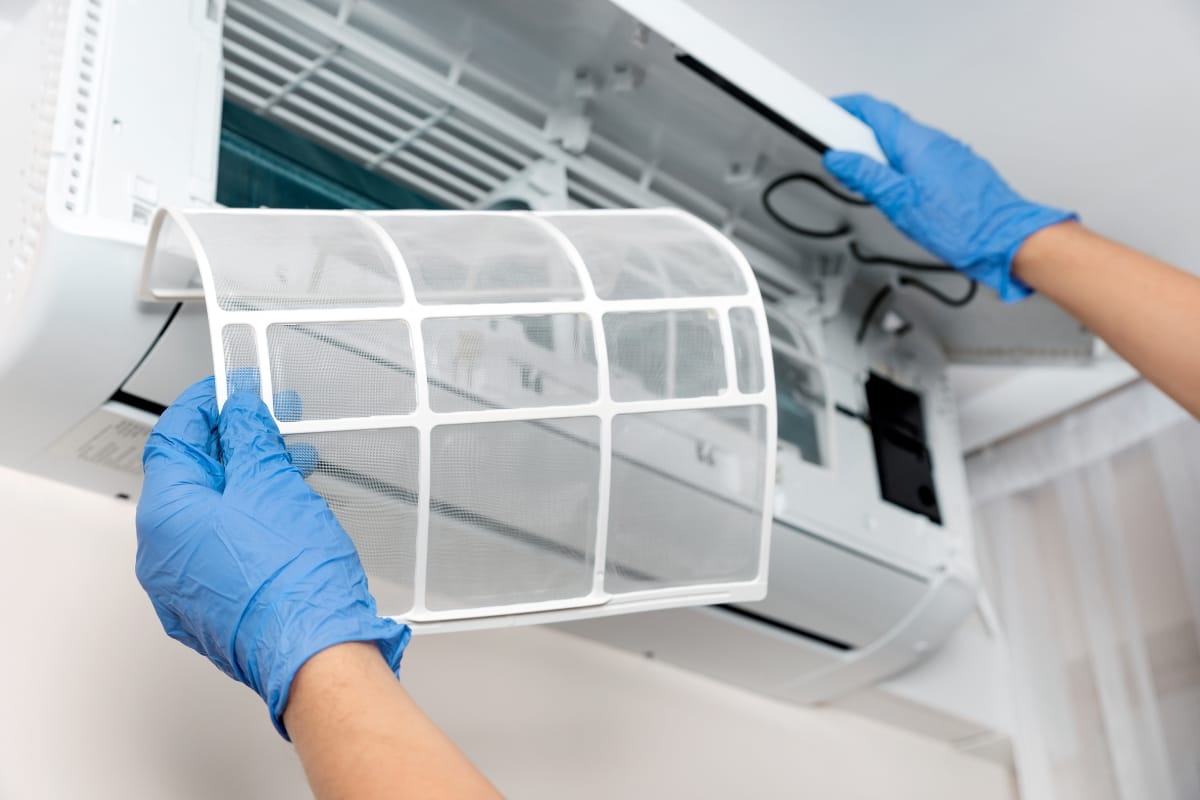
Choosing the right time for AC replacement in Dallas is crucial for comfort and cost–efficiency. This section explores timing replacements before summer rushes, leveraging seasonal discounts, and scheduling professional assessments. Understanding these factors helps homeowners make informed decisions, ensuring optimal system performance and potential savings. Professionals guide customers through the process, considering both immediate needs and long-term benefits.
Timing Your Replacement Before the Summer Rush
Dallas homeowners can save significantly by replacing their AC systems before the summer rush. It is recommended that scheduling installations in spring when demand is lower, potentially reducing costs and ensuring prompt service. This proactive approach allows families to enjoy reliable cooling when temperatures soar, avoiding discomfort and emergency repairs during peak season.
Timing replacements strategically also provides ample opportunity to research energy-efficient options and secure financing if needed. Technicians can assess current systems and recommend suitable replacements, allowing homeowners to make informed decisions without the pressure of sweltering heat. By acting early, residents can ensure their new AC units are optimized for Dallas‘s climate, maximizing comfort and efficiency throughout the summer months.
Planning for Potential Seasonal Discounts and Offers
Dallas homeowners can capitalize on seasonal discounts and offers when planning AC replacements. Companies often provides special promotions during off-peak seasons, allowing customers to save substantially on new installations. By monitoring these offers, residents can secure high-quality systems at reduced prices, maximizing their investment in home comfort.
Timing is crucial when seeking the best deals on AC replacements. It is strongly advised that homeowners start researching options and comparing quotes in early spring, as manufacturers typically release new models and discount older inventory during this period. This strategic approach enables Dallas residents to benefit from competitive pricing while ensuring their new systems are installed before the summer heat intensifies.
Scheduling Professional Assessments for Optimal Performance
Professional assessments are crucial for determining the optimal time to replace an AC system in Dallas. Experienced technicians conduct thorough evaluations, examining systemefficiency, age, and overall performance to provide homeowners with accurate recommendations. These assessments help identify potential issues before they escalate, allowing for proactive replacements that prevent unexpected breakdowns during the scorching Dallas summer.
Scheduling these assessments in early spring gives homeowners ample time to plan for replacements if necessary. Experts can provide detailed reports on system health, energy consumption, and potential cost savings of new installations. This information empowers Dallas residents to make informed decisions about their AC systems, ensuring optimal comfort and efficiency throughout the year.
Frequently Asked Questions
How can I tell if my AC needs replacement before summer in Dallas?
Signs your AC may need replacement before summer in Dallas include frequent repairs, increased energy bills, inconsistent cooling, strange noises, or age over 10-15 years. A professional HVACinspection can provide a definitive assessment and help you decide if replacement is necessary.
What is the typical lifespan of an air conditioningsystem?
The typical lifespan of an air conditioningsystem ranges from 10 to 15 years. However, this can vary depending on factors such as maintenance, usage, climate, and unit quality. Regular servicing and proper care can extend an AC system‘s longevity, while neglect may shorten it.
How do Dallas‘s environmental factors affect my AC’s performance?
Dallas‘s hot summers, high humidity, and occasional dust storms can strain AC systems, reducing efficiency and increasing energy consumption. Regular maintenance, proper sizing, and advanced filtration can help mitigate these environmental challenges, ensuring optimal AC performance in the local climate.
What comfort issues might indicate it’s time to replace my AC?
Persistent discomfort, uneven cooling, frequent breakdowns, rising energy bills, and strange noises from your AC system are telltale signs it may be time for a replacement. If your unit is over 10 years old and experiencing these issues, consider contacting a professional for an expert evaluation and potential upgrade.
Is it more cost-effective to repair or replace an aging AC unit?
The decision between repairing or replacing an aging AC unit depends on factors like the unit‘s age, repair costs, and energyefficiency. Generally, if repairs exceed 50% of replacement costs or the unit is over 10-15 years old, replacement is often more cost-effective long-term.
Secure Your Dallas Summer Comfort: Schedule AC Replacement Today
When summer approaches, noticing the signs that your AC needs replacing can save you from costly breakdowns and uncomfortable heatwaves. For reliable, expert air conditioning services that ensure your home stays cool and efficient throughout the scorching Dallas summer, choose CoolPro Heating & Cooling. Contact us today at 770-694-6232 or book a service request through our site form and take the first step toward a more comfortable home. Let CoolPro Heating & Cooling help you beat the heat with confidence!




